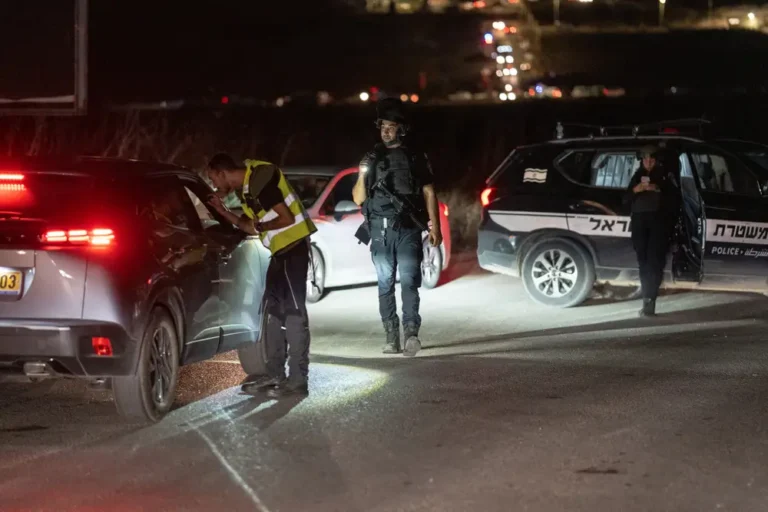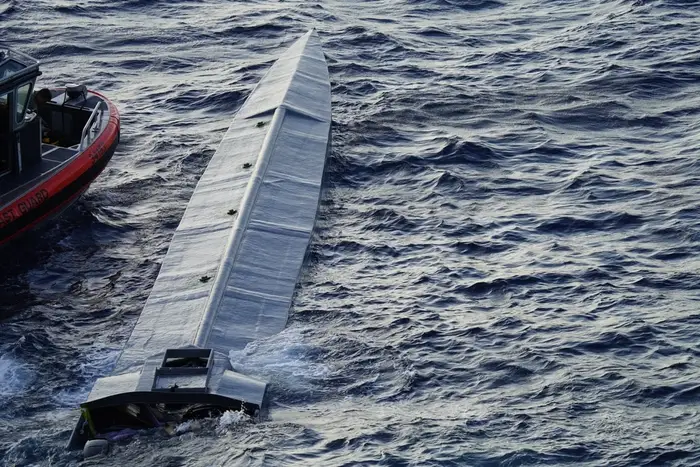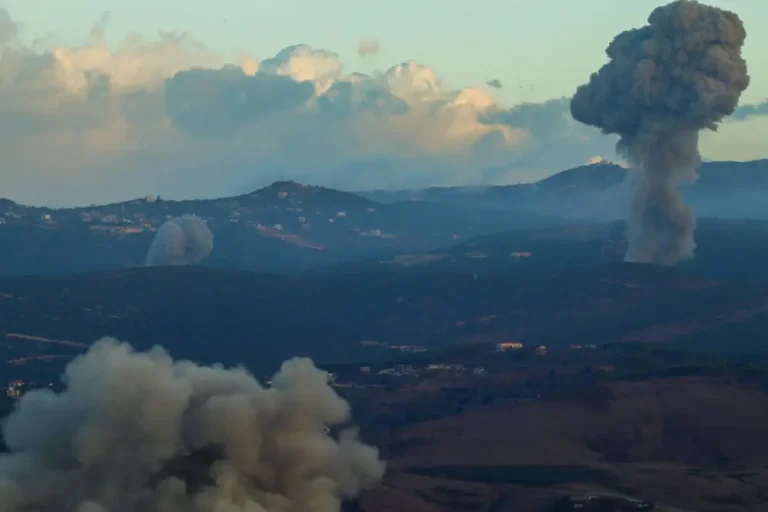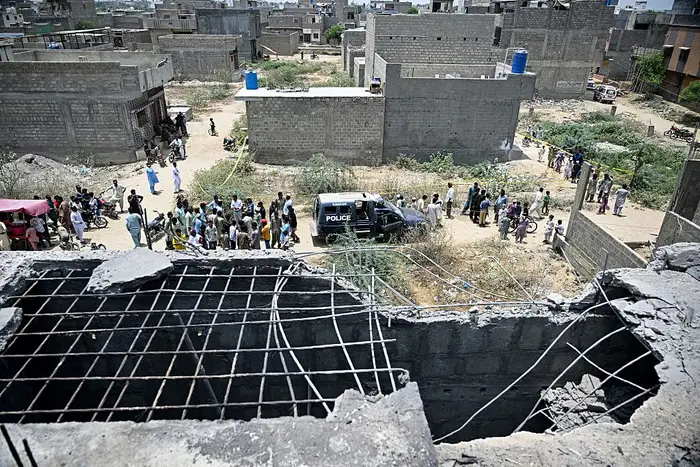Satellite images show the difficult mission to save a stricken oil tanker in the Red Sea
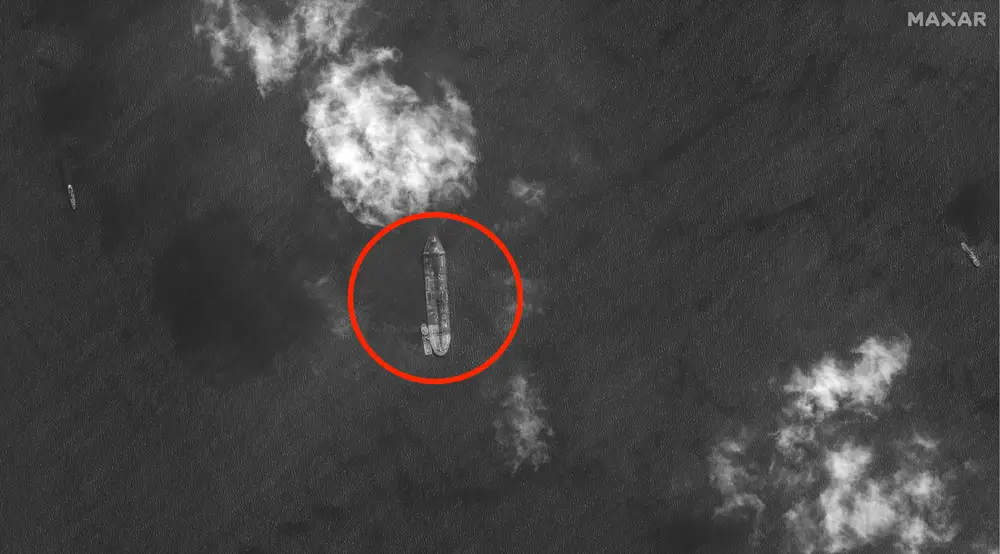
An overview of the Sounion with a salvage tug and support vessels in the Red Sea on September 14, 2024.
Satellite imagery obtained by B-17 captures the difficult mission to rescue an oil tanker stranded in the Red Sea nearly a month after the Iran-backed Houthi rebels first attacked the vessel.
After an unsuccessful earlier attempt, hindered by a mix of challenging factors, the European Union’s counter-Houthi mission said on Monday that the MV Sounion was “successfully towed to a safe area without any oil spill” under its protection.
Operation Aspides stated that it would continue to monitor the situation while “private stakeholders” finish the salvage mission. It is unclear where the Greek-flagged Sounion is now.
Satellite images captured by Maxar Technologies this past weekend show the salvage mission underway. European warships attached to Aspides helped secure the area, which has been subject to consistent Houthi attacks, providing safe passage for the tugboats.

An overview of the Sounion with a salvage tug and support vessels in the Red Sea.
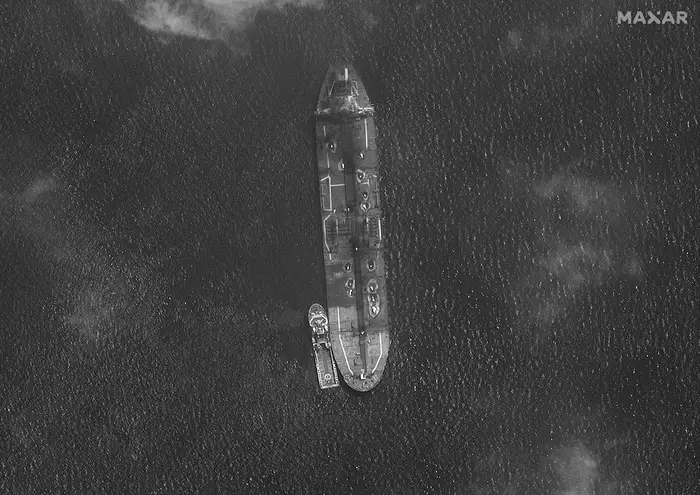
A close-up view of the Sounion with a salvage tug.
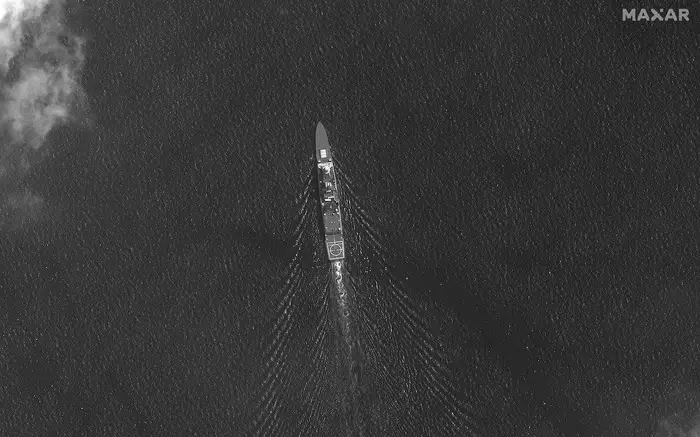
A French warship sails near the Sounion during the salvage operation.
“The completion of this phase of the salvage operation is the result of a comprehensive approach and close cooperation between all stakeholders committed to prevent an environmental disaster affecting the whole region,” Aspides said on Monday.
Another satellite image that was captured by BlackSky on Saturday shows a different view of the salvage operation, including several unidentified vessels and a Greek warship operating nearby, underscoring the European security efforts.
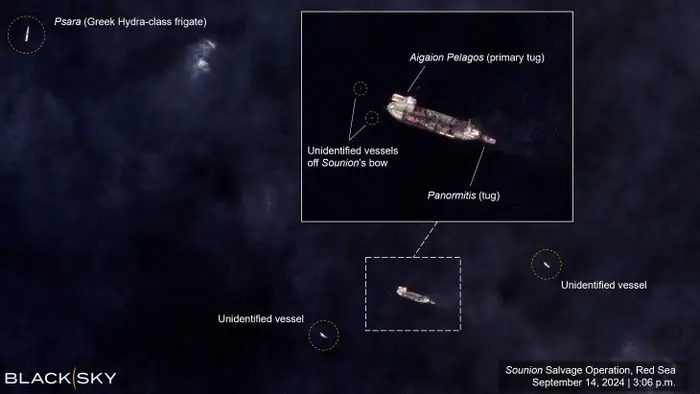
Another image shows the salvage operation underway.
The Houthis attacked the Sounion multiple times in late August, leaving the tanker without power and stranded in the water and forcing the crew to abandon the vessel.
The Sounion was transporting the equivalent of 1 million barrels of crude oil from Iraq to Greece. At one point, Houthi rebels boarded the tanker and detonated multiple explosives on the vessel, setting it ablaze and triggering fears of a catastrophic oil spill.
The US warned that Sounion’s unsustainable condition threatened an environmental disaster much worse than the notorious 1989 Exxon Valdez incident, considered one of the worst environmental calamities in American history.
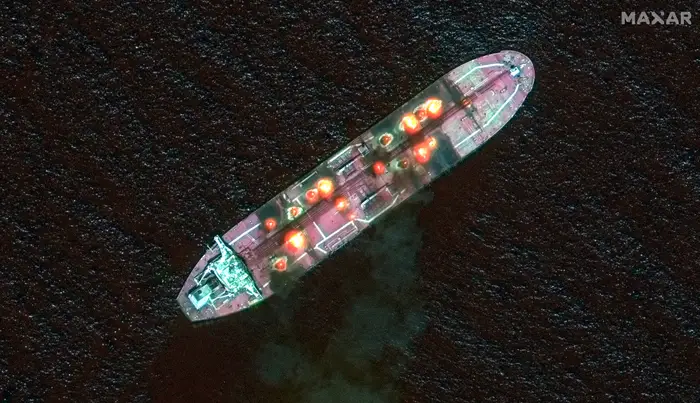
The MV Sounion is seen on fire in the Red Sea on September 9.
An initial attempt to salvage the Sounion was unsuccessful in early September, falling through over safety concerns.
Rear Adm. Vasileios Gryparis, the operational commander of Aspides, told B-17 earlier this month that a successful salvage mission required meeting safety, technical, environmental, and weather considerations.
He said at the time that among the challenges impacting the salvage mission were the fires onboard the Sounion and plans to transfer the oil from the vessel to another tanker.
The Houthis have struck a number of vessels with missiles and drones since the Iran-backed rebels started attacking merchant shipping lanes in the Red Sea and Gulf of Aden last fall.
US and European naval forces have intercepted many of the Houthis’ weapons, while others have failed to reach their targets or were destroyed in Yemen before launch by the Western forces, but attacks still sometimes get through.

